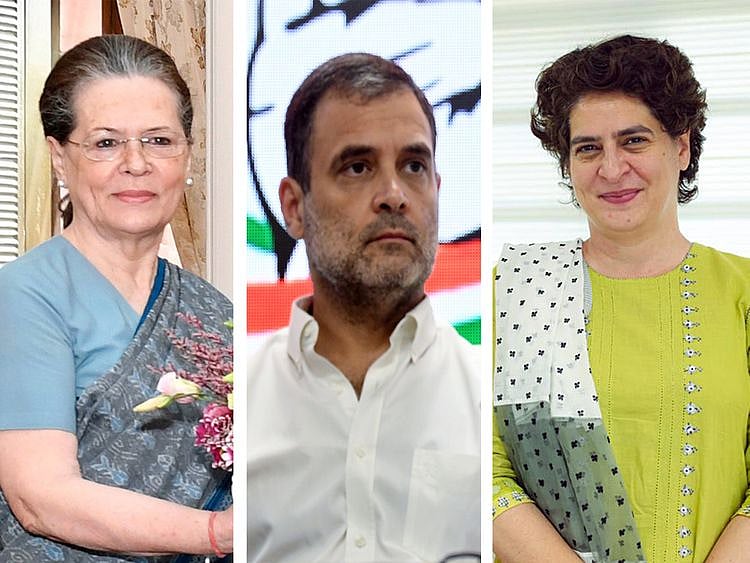India: Will Congress’ finally end its suspense over Rahul Gandhi?
The party may soon pick up its president but the fixation around Gandhi family continues

In India we are less than two years away from the next general election and make no mistake, the Bharatiya Janata Party (BJP) has already launched its campaign by rejigging the party’s highest decision making body, its parliamentary board, only last week.
On one hand the BJP is going full throttle into the next election and on the other hand, the main pan India opposition party, the Congress, continues to flounder on the leadership crisis it faces, with more senior leaders speaking out in recent days.
First, there is the issue of who will be Congress president. Rahul Gandhi does not want the top job and he has said as much to the party. So now, Rajasthan Chief Minister Ashok Gehlot has emerged as the front-runner for the Congress president’s post.
He is a non Gandhi, someone the family trusts and importantly, he is a popular Other backward Class (OBC) leader from the Hindi heartland. The BJP is aggressively trying to woo the OBC vote ahead of the next election. So Gehlot would be a smart choice.
His elevation to the party chief’s post would also resolve an immediate crisis for the Congress in Rajasthan, where he is at loggerheads with Sachin Pilot. Gehlot’s move to Delhi could pave the way for Sachin Pilot to take over in Rajasthan for the rest of the term.
But Gehlot himself continues to pitch for Rahul Gandhi to take over. He insists that only Rahul Gandhi can head the party. But other leaders in the Congress have finally realised that Rahul doesn’t want the job. That is why senior leader Digvijay Singh openly said this week that Rahul Gandhi cannot be forced to become Congress president.
But within the party, there is still a churn. Many believe a non Gandhi at the helm will trigger more factionalism and sow more divisions. Others however believe Rahul is not the messiah they are looking for and acknowledge his poor electoral record in leading the party.
In December 2017, Rahul took over as Congress president unopposed. Under his watch, the Congress lost Himachal, Gujarat (though their tally improved), Telangana though they won Chhattisgarh, Rajasthan and Madhya Pradesh and formed a government with the Janata Dal (Secular) JDS in Karnataka. Now only the Chhatisgarh and Rajasthan governments remain.
And then there was the stunning Lok Sabha defeat in 2019.
Since Rahul’s resignation after that, the party has struggled with choosing a leader.
To make things worse, a series of senior leaders have left the party and some have spoken out in the last few weeks as well. Anand Sharma quit the poll panel for Himachal a few days ago, telling NDTV he had no choice after “continuing exclusion and insults”.
In a letter to Sonia Gandhi, Mr Sharma said he was not invited to any meetings regarding the Himachal polls or involved in any planning for the assembly elections, which are due along with Gujarat later this year.
His comments came just days after another senior leader, Ghulam Nabi Azad quit the poll panel formed for Jammu and Kashmir. You would think that the Congress would have done its homework before announcing these appointments.
Both Azad and Sharma are part of the so called G23 group in the Congress, the “rebels” who have demanded accountability and change.
As I write this column, news has come in that a young, articulate spokesman of the Congress, Jaiveer Shergill, has resigned from the party and taken a direct dig at the Gandhis. “The decision-making of the Congress party is not in sync with the ground reality anymore. I’ve been seeking time from Rahul Gandhi, Sonia Gandhi and Priyanka Gandhi Vadra for more than a year, but we are not welcomed in the office,” he said.
The Congress is now gearing up for choosing the next president. The party has announced that it will meet on Sunday to finalise a date for the election. Will there be an election or a selection? Watch this space.
Network Links
GN StoreDownload our app
© Al Nisr Publishing LLC 2025. All rights reserved.